Situated in the middle of Western Europe, France is a country with a fascinating history shaped by conquest, conflict, and revolution. From the Gaulois days in the Iron Age to the present day, the history of France is rich and varied. France has seen hundreds of era-defining events as well as a wealth of important French historical figures. When it comes to the building of a republic, it’s fair to say that France has not had an easy ride. Learning more about a country’s past is a great way to gain an understanding of the outlook and traditions of its people.
So, let’s take a look at 15 of the most important dates in French history!
481 - 511
Reign of Clovis
800
Charlemagne Becomes Holy Roman Emperor
843
Signing of the Treaty of Verdun
1137-1180
The Reign of King Louis VII
1461 - 1483
The Reign of Louis XI
1661
Centralization of Power in France by Louis XIV
1789
The French Revolution
1789
Declaration of the Rights of Man and of the Citizen of 1789
1804-1814
Napoleon Declares Himself Emperor of France
1870-1871
Franco-Prussian War
1914-1918
World War I
1940 - 1944
The Vichy Regime
1959
Declaration of the Fifth Republic
1968
Riots of May '68
2002
Introduction of the Euro in France

1. 481 – 511: The Reign of Clovis
Clovis I founded the Kingdom of Franks by uniting all of the Frankish tribes under one crown, making him effectively the first King of What-Would-Eventually-Be-France.
Originally the king of a Frankish tribe known as the Salian Franks, Clovis was born into a Pagan family but explored Arianism (a Christian heresy) before being baptized into the Catholic church later in life.
His changes to the political system from one where each tribe had its own petty king to one where they were all ruled over by one great king.
This homogenized the various tribes into a collection called the Frankish Kingdom, aka Francia, and ensured that the crown would be passed down to his descendants.
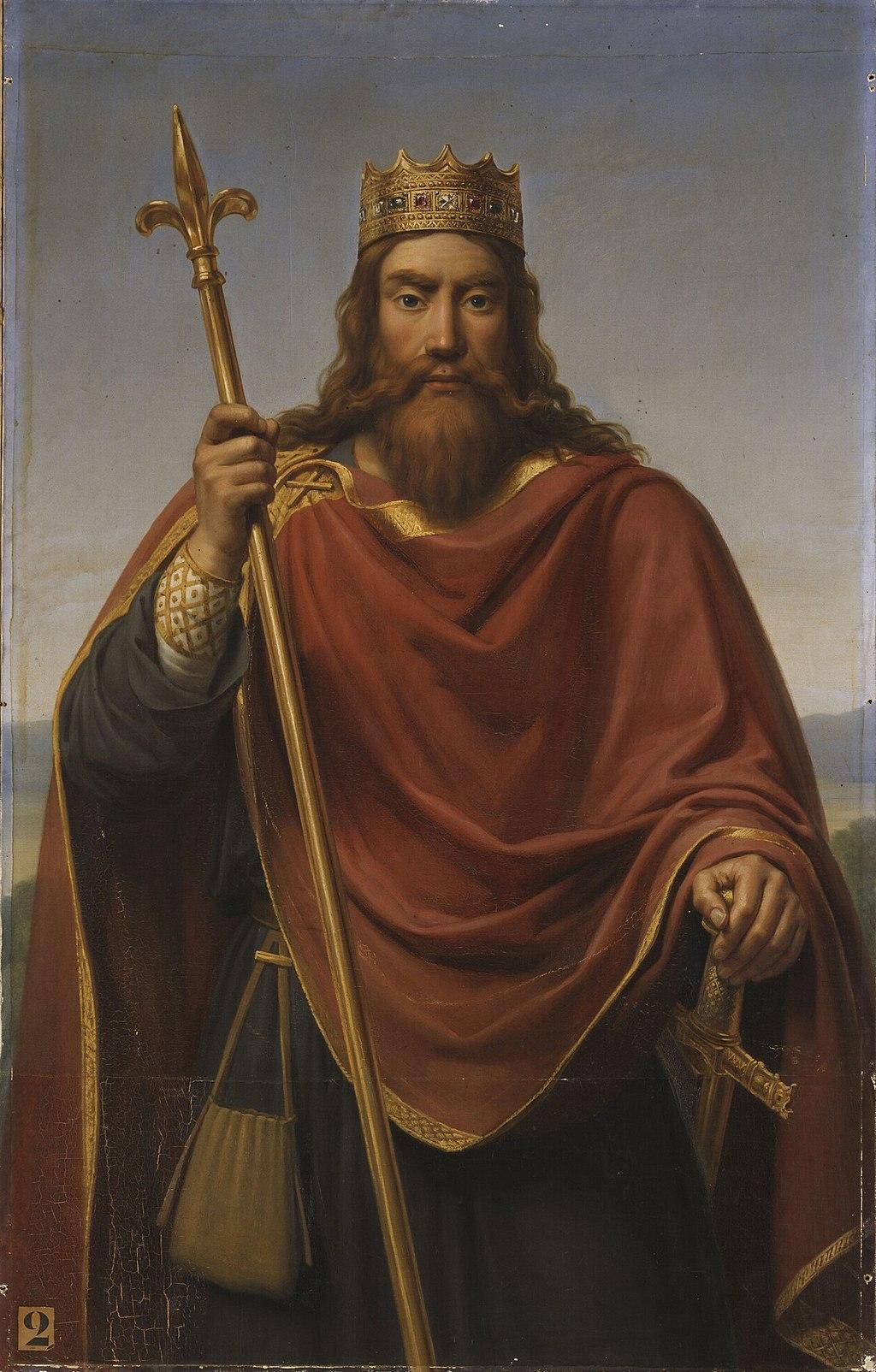
Because of this, Clovis I is considered to be the founder of the Merovingian dynasty, which survived for over 200 years.
This unification of tribes in the region that would eventually be known as France set a foundation for a large assembled community later on.
Clovis eventually died in Paris, Francia (France), and is now buried in the Saint-Denis Basilica. It’s incredible to think that French history goes so far back and is recorded well enough for us to know where the original King of France died and his remains are still tended to to this day!
2. 800: Charlemagne Becomes Holy Roman Emperor
Hundreds of years later, Charlemagne, also known as Charles the Great, jointly inherited the Frankish crown with his brother, Carloman, following the death of their father, Pepin III.
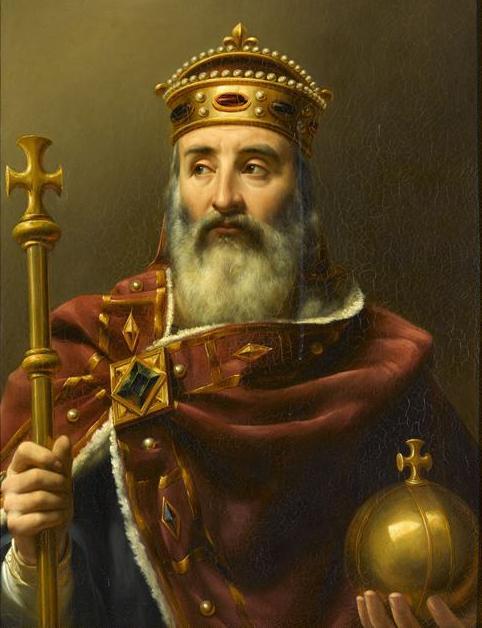
The division of power over the kingdom made for a fierce rivalry between the brothers, and Charlemagne made as many alliances as he could to secure his position as ruler.
However, when Carloman died unexpectedly in 771, Charlemagne was left as the sole ruler of the Frankish Kingdom.
Frankish tradition dictated that as King of the Franks, Charlemagne was a warrior king whose duty was to lead his troops to victory over other territories in the same way that his Merovingian predecessors had.
Charlemagne’s military skill was recognized by Pope Leo III when he crowned him Holy Roman Emperor in the year 800. In his position over most of Europe, Charlemagne was able to keep Christianity in the West alive, which is one of the top historical events with obvious long-lasting effects.
Charlemagne (aka Charles the Great) is perhaps most known for unifying Western and Central Europe for the first time after the fall of the Roman Empire. His rule extended to the areas now known as France, Switzerland, Belgium, the Netherlands, Germany, and parts of Austria and Spain.
3. 843: Signing of the Treaty of Verdun
Louis the Pious (Charlemagne’s last surviving son) attempted to give his four sons varying degrees of power and influence in the Carolingian Empire’s territory. He gave the eldest, Lothair I, the title of King of Italy/co-Emperor of the Empire. His second son Pepin was made King of Aquitaine, and his third son Louis the German was made King of Bavaria. When Louis the Pious tried to give his fourth son (of his second marriage), Charles the Bald, some power, the other three sons disagreed and resisted.
Lothar and Pepin banded together to dethrone Louis the Pious and seat Lothair instead, which they succeeded in doing. But the next year, Louis took the throne back, demoted Pepin, and stripped Lothair of his titles.
The power dynamics of the family and the lands they ruled changed multiple times in a short period, throwing the family and the empire into restlessness.
Eventually, the family made amends enough to function for some time before falling back into their old ways.
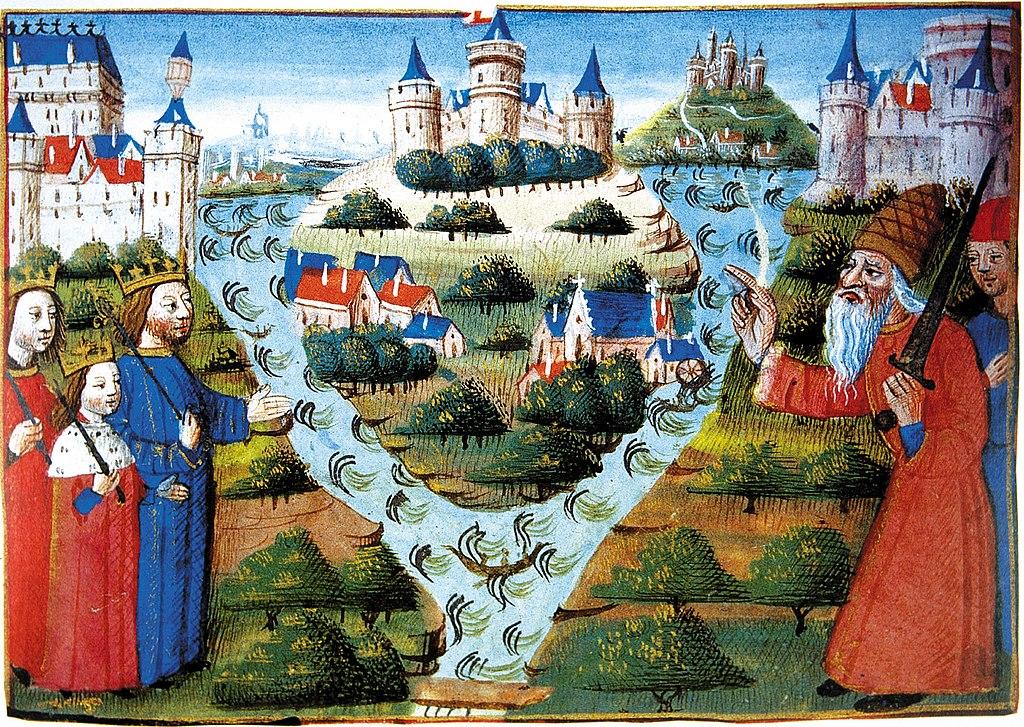
When Louis the Pious finally died, Lothair sought to claim his two remaining brothers’ lands (Pepin had died by this time).
In retaliation for Lothair’s greed, Louis and Charles declared war on their brother and signed the Oaths of Strasbourg, which made their war declaration official.
Thankfully, the civil war didn’t last long, and the very next year, the signing of the Treaty of Verdun brought an end to the Carolingian Civil War. As a result, Charlemagne’s empire was split into three sections: The Western Frankish Realm, the Central Frankish Realm, and the Eastern Frankish Realm (aka West Francia, Central Francia, and East Francia), which were ruled by Charles the Bald, Lothair, and Louis the German, respectively.
The signing of this treaty is particularly important as it laid the foundations for the modern-day European countries of France and Germany.
The victories and hardships seen by the French nation are not only significant in the history of France but in the history of Europe and the world.
4. 1137 - 1180: The Reign of King Louis VII
Louis VII developed medieval France in many pivotal ways. He was one of the leaders of the Second Crusade, having joined at the request of the Church to defend Christian territories.

Although the campaign was a failure, it served to strengthen the connection between France and the Christian world, influencing the country’s priorities. This was important, since Louis VII had many instances of insulting the Church during his reign.
Louis was also known for two major social developments in Paris, founding both the University of Paris (the Sorbonne) and the Notre-Dame Cathedral. These developments helped reiterate Paris as one of the top cultural hotbeds of the time, a reputation that has obviously continued to the present day.
Notably, Louis VII also highlighted the delicate balance between royal authority and the power of the Church when he was granted an annulment in his marriage to Eleanor of Aquitaine.
Learn about all this and more with amazing French tutors near me on Superprof.
5. 1461-1483: The Reign of Louis XI
The Hundred Years’ War began in 1337 between the Kingdoms of England and France and was an on-and-off conflict for a total of about 116 years.
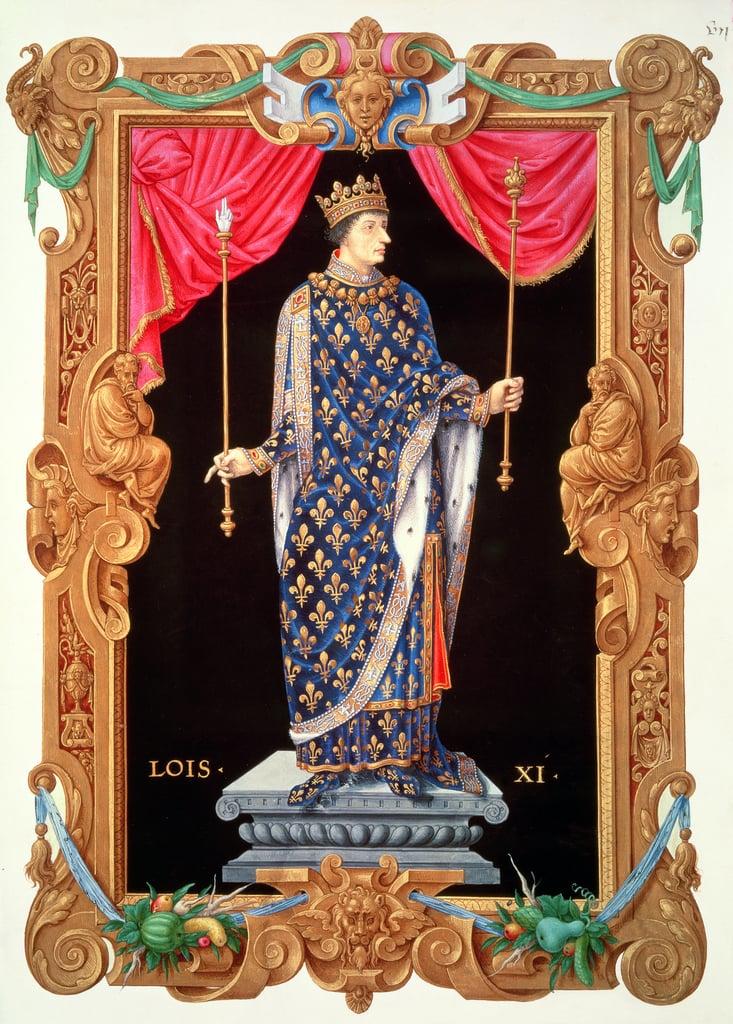
During the war, five generations of kings from France and England fought for the French throne, which was then the dominant kingdom in Western Europe. The war had a lasting effect on European history. Both sides produced innovations in military technology and tactics, including professional standing armies and artillery, that permanently changed European warfare.
King Louis XI was the king who brought an end to the Hundred Years' War with the signing of the Treaty of Picquigny in 1475, which prevented a slow period following the French victory in Castillon from turning back into full-blown warfare.
This treaty declared peace between England and France for a minimum of seven years while they worked out the details of the relationship between the two kingdoms and how their territories and power could be divided.
Throughout Louis XI’s reign in France, he made some powerful advancements, like limiting the power of nobles as a way to strengthen the crown, making the tax system more efficient, and building postal roads all across the kingdom for fast and efficient message-relaying, earning him the nickname the “Universal Spider.”
6. 1661: Centralization of Power in France by Louis XIV
Louis XIV, also known as the ‘Sun King,’ reigned from 1643 to 1715.
He is most notable for literally bringing France’s royal and political centers under one roof at his home, the Palace of Versailles.
Louis achieved this by first declaring himself as the divine ruler of the Kingdom of France following the death of Cardinal Mazarin, his chief minister. Though this move was strictly against French political and royal tradition, Louis was convinced of his divine right to rule over the Kingdom as a dictator.
During his time as ruler of France, Louis XIV sought to strengthen the monarchy and weaken the feudal nobles. Doing so would mean that the nobles wouldn’t feel as though they were even close to the same amount of power as the crown and would not gather their own forces to possibly take on the monarchy in battle.
Louis XIV created a culture of dependency on the crown by making it mandatory for the nobles to spend part of the year in Versailles, where they would be treated lavishly and develop a sense of contentment, assuring they would not rebel against the king, who treated them so well.
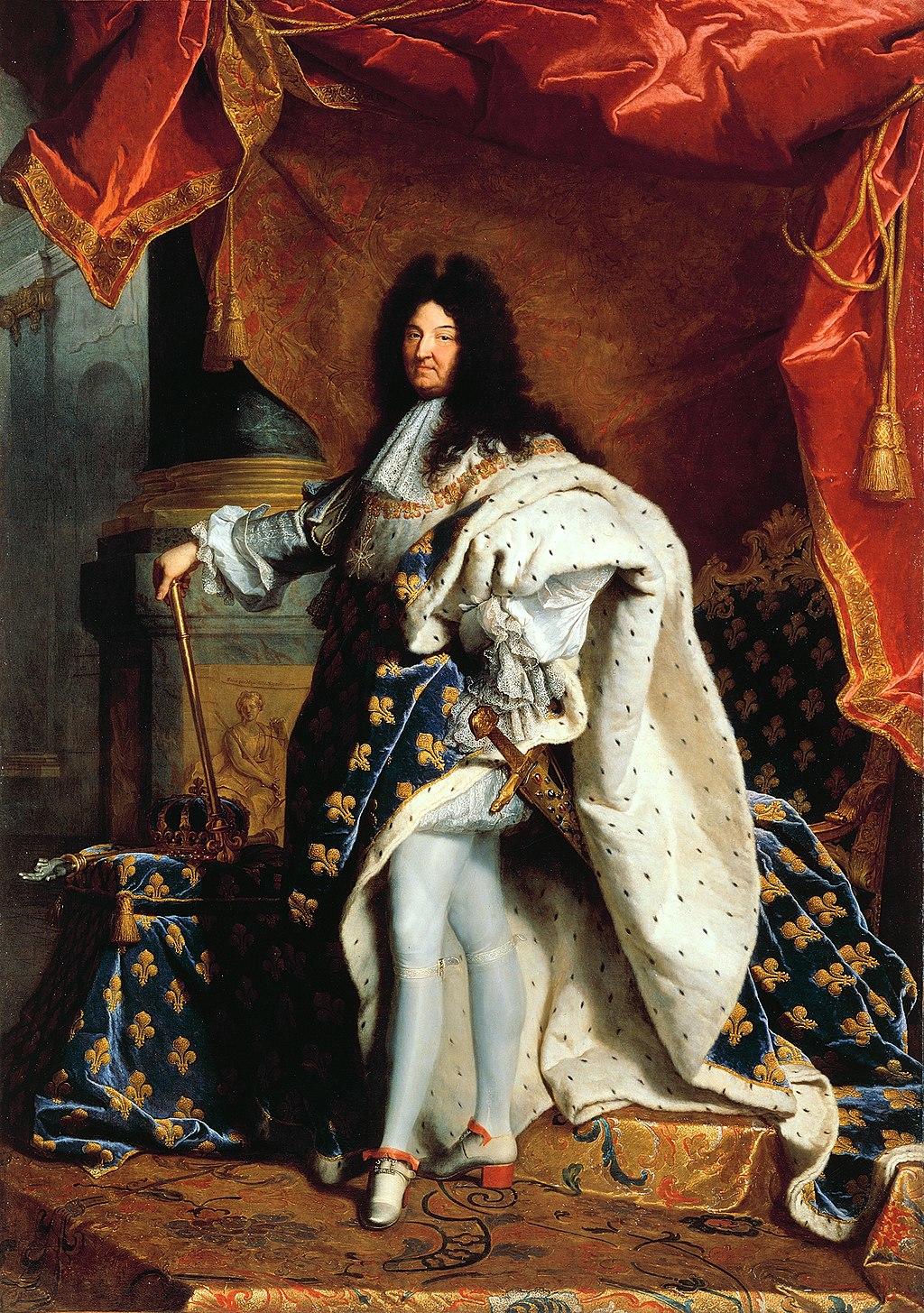
It simultaneously meant that Louis could keep a close eye on the nobles.
Louis XIV was also a war-monger. He had grown up during the Franco-Spanish War, and so he must have become accustomed to wartime life. He led France into five major conflicts over his 72-year reign, which changed the political and economic landscape of France and Europe each time.
Get a better understanding of French history by learning the language! Find a french tutor and explore key moments in French culture, history, and politics through the language.
7. 1789: The French Revolution
The French Revolution was one of, if not the most, pivotal points in the history of France.
Due to the centralization of power by Louis XIV and the debts incurred by war, compounded by the following reign of Louis XV, who lost even more of the crown’s money plus colonies in North America in war, and followed by Louis XVI, whose poor economic strategy led to food scarcity and overtaxed commonfolk, the Third Estate (peasants) decided to rebel.
The French (particularly Parisian) peasants became intolerant of the Ancien Régime and became violent towards the monarchy, storming Versailles and attempting to assassinate the queen. A semblance of peace was established, and the angry mob left; however, the seeds of revolution had been planted and were beginning to sprout.
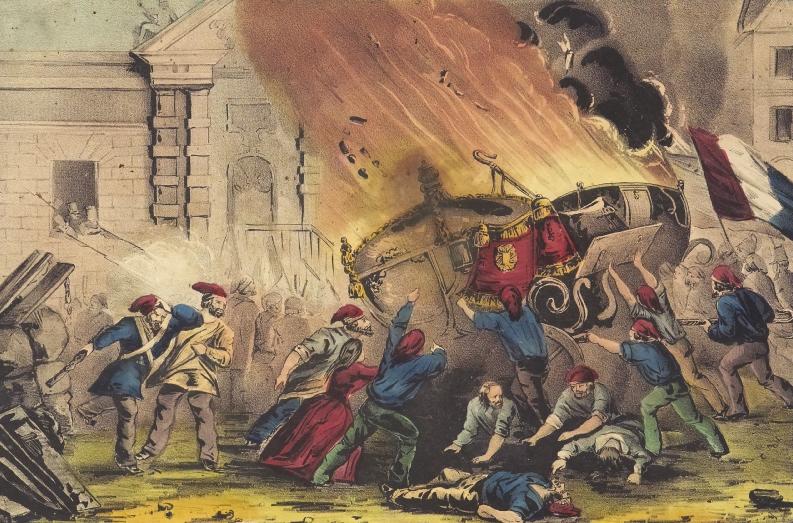
On August 13, 1792, the National Convention (made up of Third Estate citizens who declared themselves a legislative body) arrested Louis XVI and declared France to be a republic.
Shortly after, Louis was tried and convicted of high treason and executed via guillotine.
He was followed by Marie Antoinette, and then many, many others in the Reign of Terror led by Robespierre.
The future of France was irrevocably changed to go in an entirely new direction. The First Republic was established in 1792 and paved the way for Napoleon I to become Emperor of the French and go on to perform some other major events in French history.
Bastille Day is celebrated on the 14th July every year. It celebrates the Storming of the Bastille, which signified the start of the Revolution. The Bastille was a fortress in Paris that served as a prison for those who were seen as disloyal to the monarchy. The storming mob, made up of about 1,000 peasants, hoped to find weapons to fight against the monarchy, as well as free any prisoners. The mob captured and eventually beheaded many of those posted to defend the Bastille. The Bastille was then dismantled brick by brick over the course of about five months.

8. 1789: Declaration of the Rights of Man and of the Citizen of 1789
The drafting of the Declaration of the Rights of Man and of the Citizen of 1789 marked a key point in the French Revolution when it was adopted by the National Constituent Assembly as part of the creation of a new French constitution.
The document is made up of seventeen articles detailing the rights of men within the context of a new France. For instance, the Declaration calls for an end to feudalism and therefore to aristocratic powers over land and the people who work on it, as well as granting the French people sovereignty over their country.
This declaration was used alongside the Magna Carta as inspiration for the United Nations Universal Declaration of Human Rights in 1948.
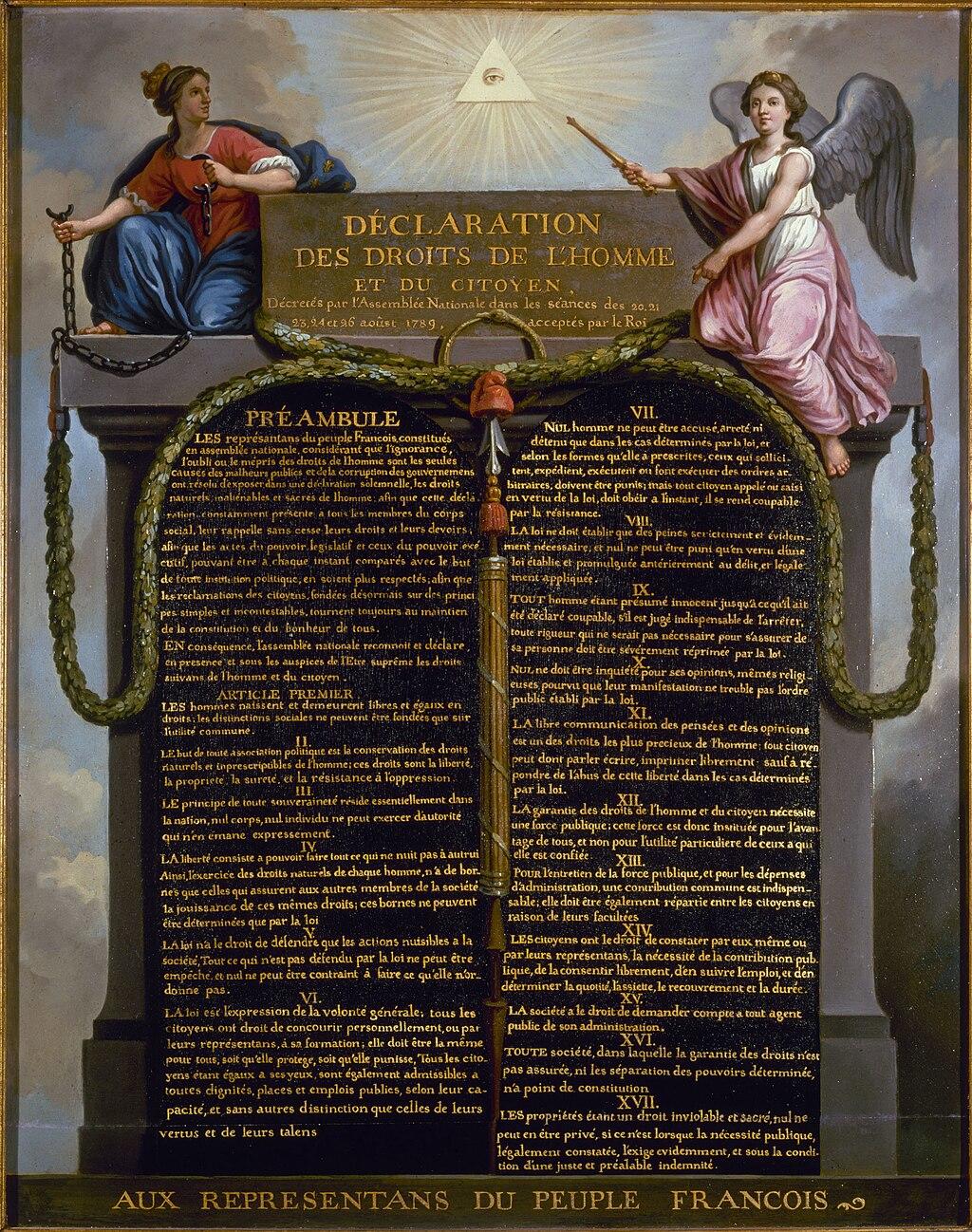
9. 1804 - 1814: Napoleon Declares Himself Emperor of France
When Napoleon Bonaparte crowned himself Emperor in 1804, it was the start of a major reshaping of France and Europe as a whole. One of his most enduring reforms was the implementation of the Napoleonic Code in 1804, which defined concepts like civil law and property rights. He centralized the government, reorganized the education system, and modernized the tax system, increasing France’s state power.
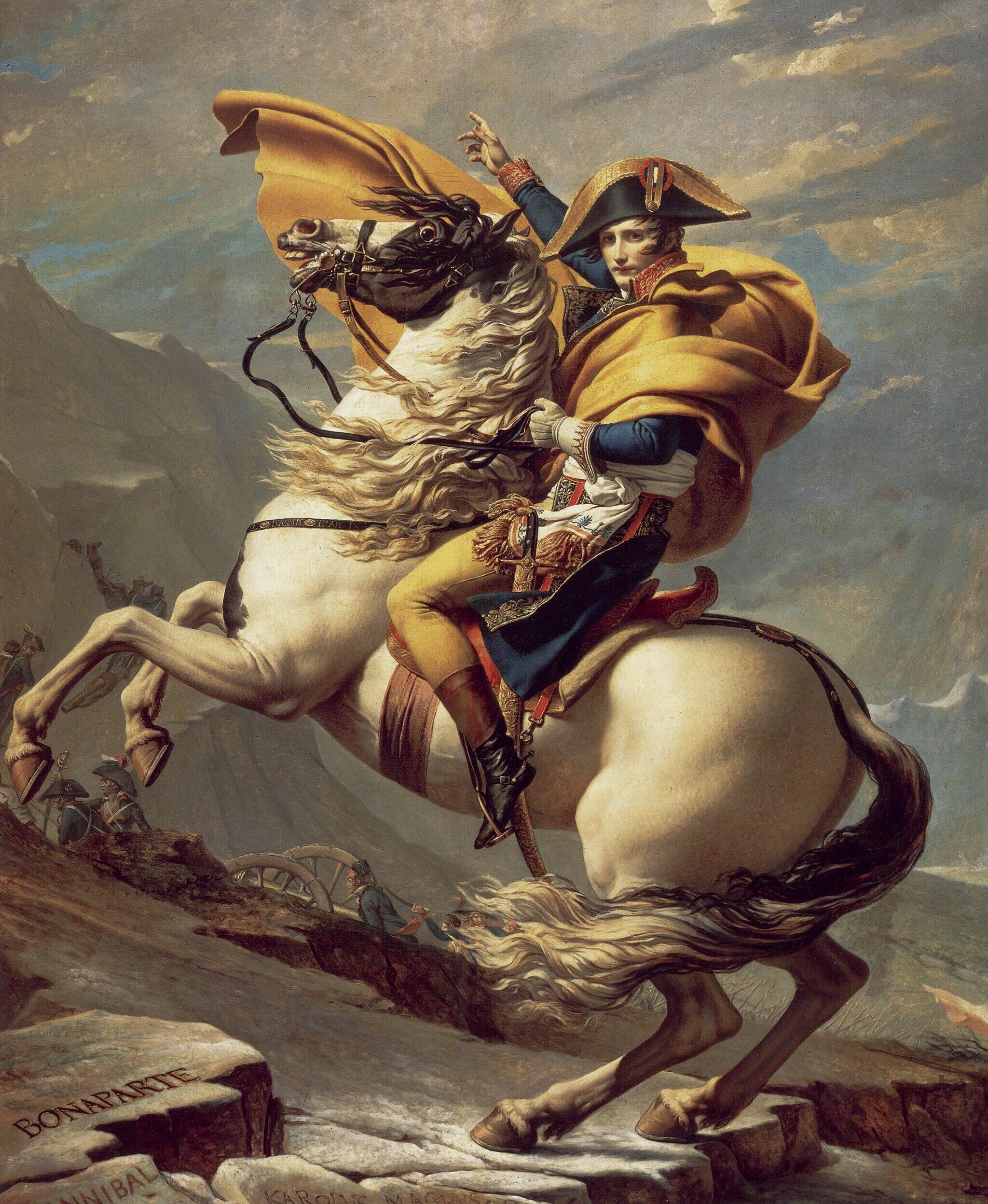
His military conquests spread revolutionary ideas across Europe by virtue of introducing different groups of people to ideas like liberty.
Through battle, he changed borders and introduced legal, military, and administrative reforms far and wide.
For much of his reign, Napoleon was generally well-liked because he gave structure to France in a way that had been severely lacking in the Reign of Terror after the Revolution.
Eventually, Napoleon collapsed under the weight of his ego after betraying the ideals set by the Revolution that gave him power in the first place. Napoleon's time as emperor is by far one of the most notable French historical events.
La paix est un mot vide de sens ; c'est une paix glorieuse qu'il nous faut.
("Peace is a meaningless word; it is glorious peace that we need.") - Napoléon Bonaparte
10. 1870 - 1871: Franco-Prussian War
Prussia and France were in tension over which country could lay claim to the recently empty Spanish throne. The Prussian and German forces united. Their artillery weapons were superior, and their numbers vastly outnumbered France’s troops. The Prussian forces invaded the northeast section of France and handily defeated them, capturing the emperor and demoralizing the French. In response to his defeat, Parisians overthrew Napoleon III’s government. The chaos in the city made it easy to capture. Within 24 hours, the Prussian troops surrounded Paris and took control of Versailles.
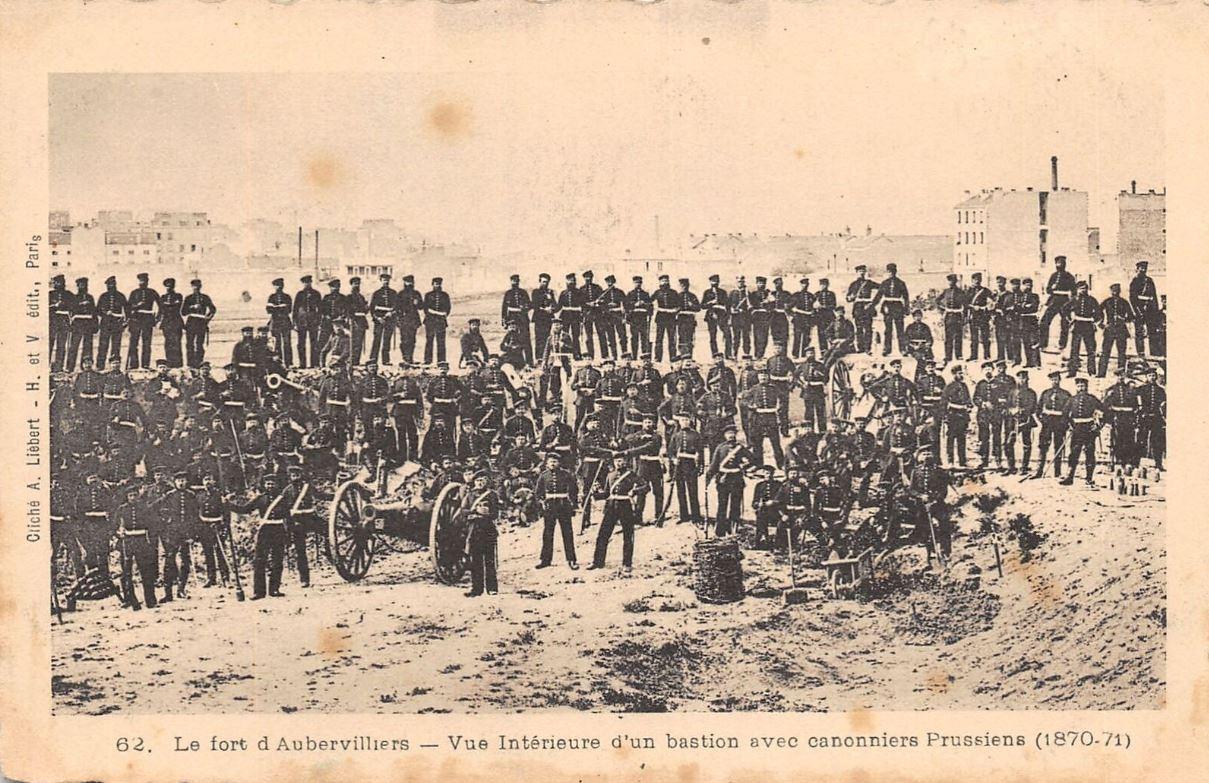
Hundreds of thousands of French troops and civilians perished in the war. Even though the German and Prussian troops also suffered many casualties, they fared much better. The victory in the war catapulted them to further success; Germany emerged as a unified nation, helped by the spoils of the Franco-Prussian War, mostly the annexation of Alsace-Lorraine and the exorbitant monetary winnings.
Germany’s victory also stoked a deep resentment in the French people, leading to a domino effect of anger and destruction. If you’re studying these turning points, working with a french tutor can help you build the vocabulary to read more about the era in French.
11. 1914 - 1918: World War I
WWI had a devastating impact on France. The country was one of the major players on the Western Front, and millions of French soldiers fought and died over the war’s four years.
Having perhaps just recovered from the fallout of the Franco-Prussian War, France again paid heavily with civilian casualties and a brutalized economy.
Many troops were also left disfigured and/or disabled through injury or psychological trauma.
France’s agriculture suffered as many of the farms and fields had been destroyed.
The French people (along with others involved in WWI) experienced a collective trauma full of bombs, chemical weapons attacks, and trench warfare. Entire families were wiped out, and immigration surged as a way to replace the decimated population.

It left the populace scarred and demoralized, and would inform their decisions regarding WWII.
12. 1940-1944: The Vichy Regime
During World War II, the signing of an armistice between France and Germany in 1940 divided France into two zones: The Northern zone, which was occupied by German forces, and the unoccupied Southern part of the country known as the ‘Free Zone’.
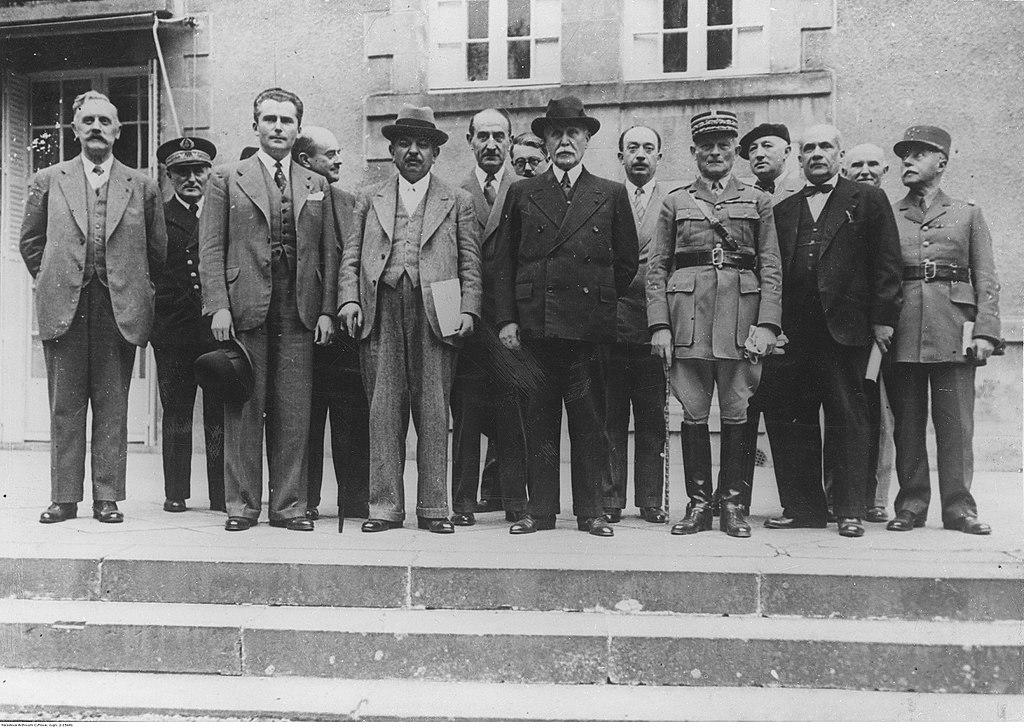
Although it seemed that the French State would try to carry on as normal, its leader, Marshal Pétain, had other ideas.
Pétain established a regime (headquartered in the town of Vichy) with similar values to the Nazi regime in Germany.
Pétain’s subsequent agreement to collaborate with Germany was met with protest, and the Vichy regime ended in 1944 when France was liberated by the Allies.
Learning about French history is even more fulfilling when you supplement it with online French classes, where you can learn more about how history and culture shape the language, and how the language continues to shape the culture in turn!
13. 1959: Declaration of the Fifth Republic
The Fifth Republic is a system of government that was drafted by Charles de Gaulle and later approved by the French people in a referendum. This new government was formed in response to the failure of the Fourth Republic, which was weak due to political instability within the government itself.
The Algiers putsch (the Algerian War of Independence) further destabilized the Fourth Republic, and it eventually collapsed.
This prompted de Gaulle to un-retire from politics, help create the new republic, and become the new president.
The key difference between the fourth and the fifth republics is that the president was given more authority at the expense of the National Assembly, which is now the lower house of parliament.
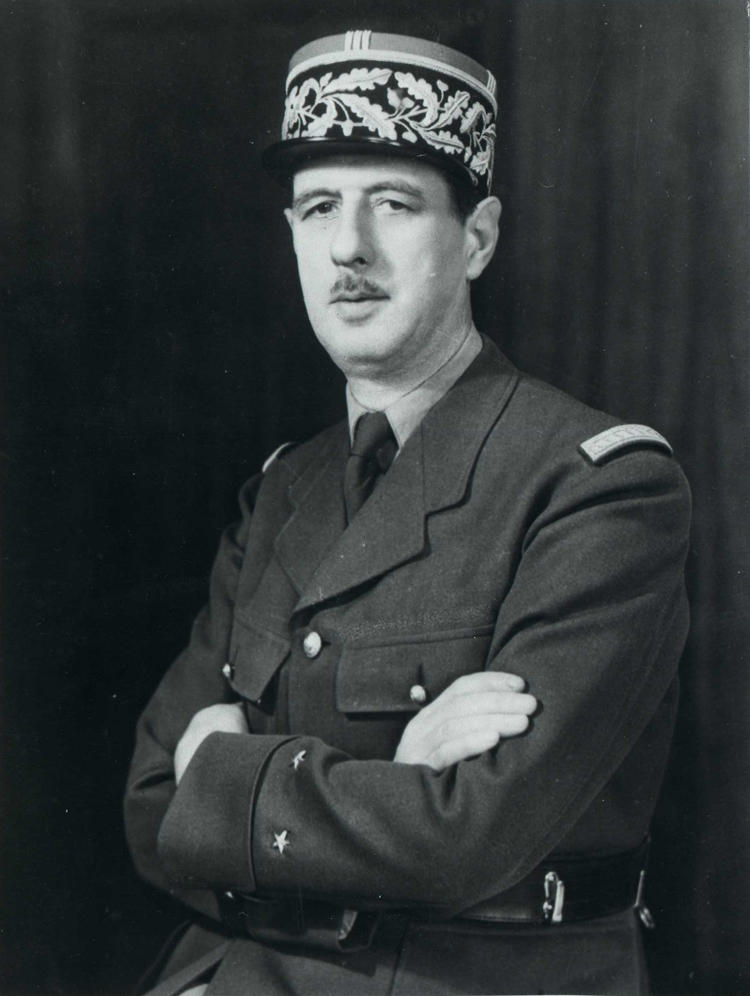
A relatively new form of government, the France we know today operates under the rules of the Fifth Republic, with Emmanuel Macron currently serving as its president.
Discover French classes near me and learn more about French culture, history, and language with a qualified tutor on Superprof!
Comme un homme politique ne croit jamais ce qu'il dit, il est étonné quand il est cru sur parole.
("Since politicians never believe what they say, they are surprised when people take them at their word." - Charles de Gaulle
14. 1968: Riots of May ’68
The events of May 1968 marked the lives of a generation of French students.
The whole of the 1960s saw a lot of political turmoil in France. Algeria declared independence in ‘62, the Fifth Republic was still settling in and working out the snags, and the Vietnam War was inspiring young people all over the world to question leadership. With the significant growth in the number of young people attending university in France, students and workers remembered that they had a voice of their own, just like their revolutionary ancestors, and they had a lot to say.
Tired of a country preoccupied with old values of capitalism, imperialism, and traditionalism, members of the Communist and Socialist parties, along with far-left learning members of society (including about 150 university students) occupied an administration building at Paris University at Nanterre (now known as Paris Nanterre University) in March.
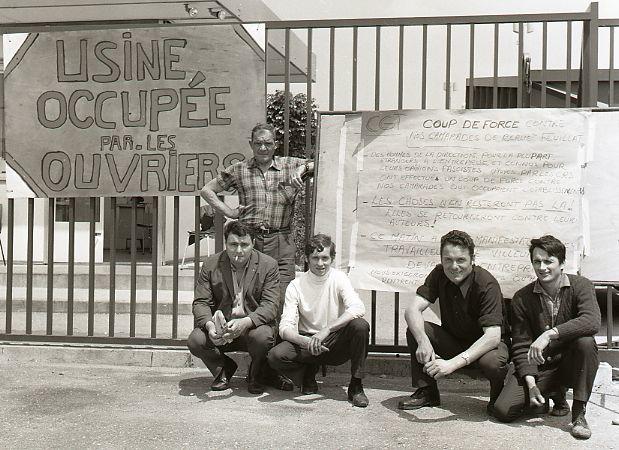
There, they held a meeting about class discrimination in French society and the political bureaucracy that controlled the university's funding. While this first protest event was dispelled without any violence or destruction, protests continued on at the campus, finally prompting the university administration to shut the campus down in May.
More than 20,000 students, teachers, and supporters marched together to Sorbonne University to protest the closure of the campus. When protestors met the police, tensions rose, and eventually, protestors began throwing rocks at the police, who responded with force, and hundreds of students were arrested.
More and more student protests took place. Even high school students, teachers, and young workers began protesting the police, the imprisonment of the protestors, and the closure of the university campus.
On March 13, over a million protestors marched through Paris, and although they met little police resistance, the damage had already been done from instances of police brutality in previous protests. Students occupied Sorbonne University and inspired over 400 action committees to be set up in Paris and elsewhere to take up grievances against the government and French society.
The protests spread to encompass workers across all sectors of the economy, and up to ⅓ of all French workers began striking, requesting higher wages and more workers' rights.
At the May 25th protest...
injuries
arrests
deaths
Feeling pressure from the Communist government party, which was calling for a revolution and a new government, then-president Charles de Gaulle fled the country on May 29th and went missing from the world for about six hours, and the government effectively halted.
On May 30th, 400,000 to 500,000 protesters marched through Paris, calling for de Gaulle’s resignation. That evening, de Gaulle announced a special election to be held on June 23, and the protesting crowd was satisfied. A full-blown second French Revolution was avoided, much to the relief of the necks of all the government officials.
Georges Pompidou was then elected to be the second president.
Alain Geismar, who was one of the student leaders at the time, later said the movement had succeeded "as a social revolution, not as a political one".
May 1968 is remembered as a demonstration of anti-authoritarianism and the rejection of conservative values in France.
15. 2002: Introduction of the Euro in France
The Euro was introduced in 1999 and was gradually rolled out for practical use in the European Union.
On January 1st, 2002, France, along with 11 other countries, officially introduced the euro banknotes and coins, replacing the franc (which had been France’s currency since 1795). The franc stopped being accepted as currency in 2002, after the transition period ended.
The logistics behind the switch were massive, involving careful coordination between banks, ATMs, retailers, and cash machines across the country.
Moving to a common currency within the EU helped France feel more connected and integrated with their brethren nations.
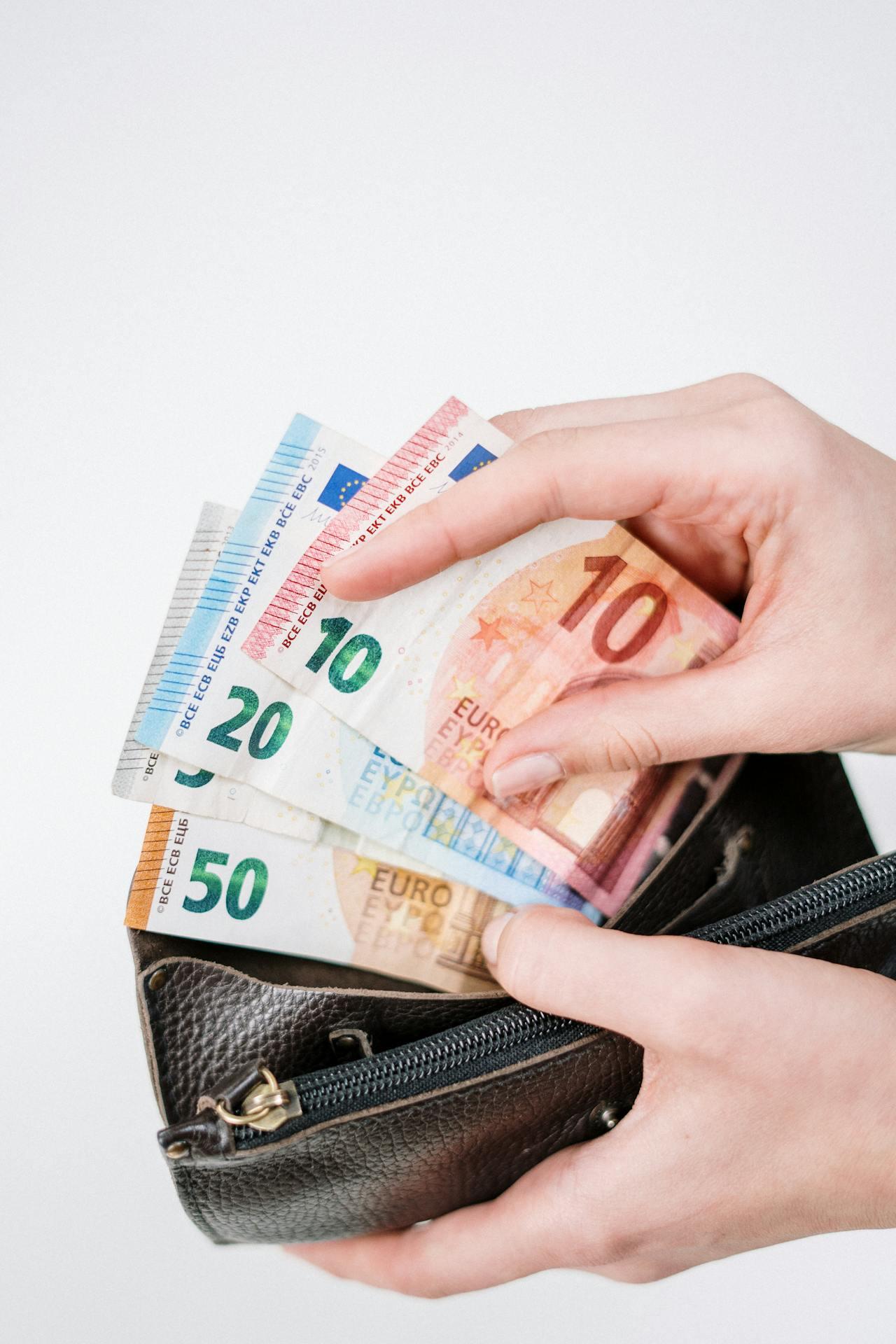
It also helped tie France’s economy with European neighbors, building reliance and dependence on one another.
There are, of course, many other moments in the French history timeline that stand out as defining; this is just one short article!
You can learn more about fascinating French history while you take French lessons with a Superprof tutor. If you’re looking for more one-on-one support, you can also work with a french tutor to build your skills faster. Learning a language is naturally tied to learning more about the history and culture of a place, after all!
Summarize with AI:

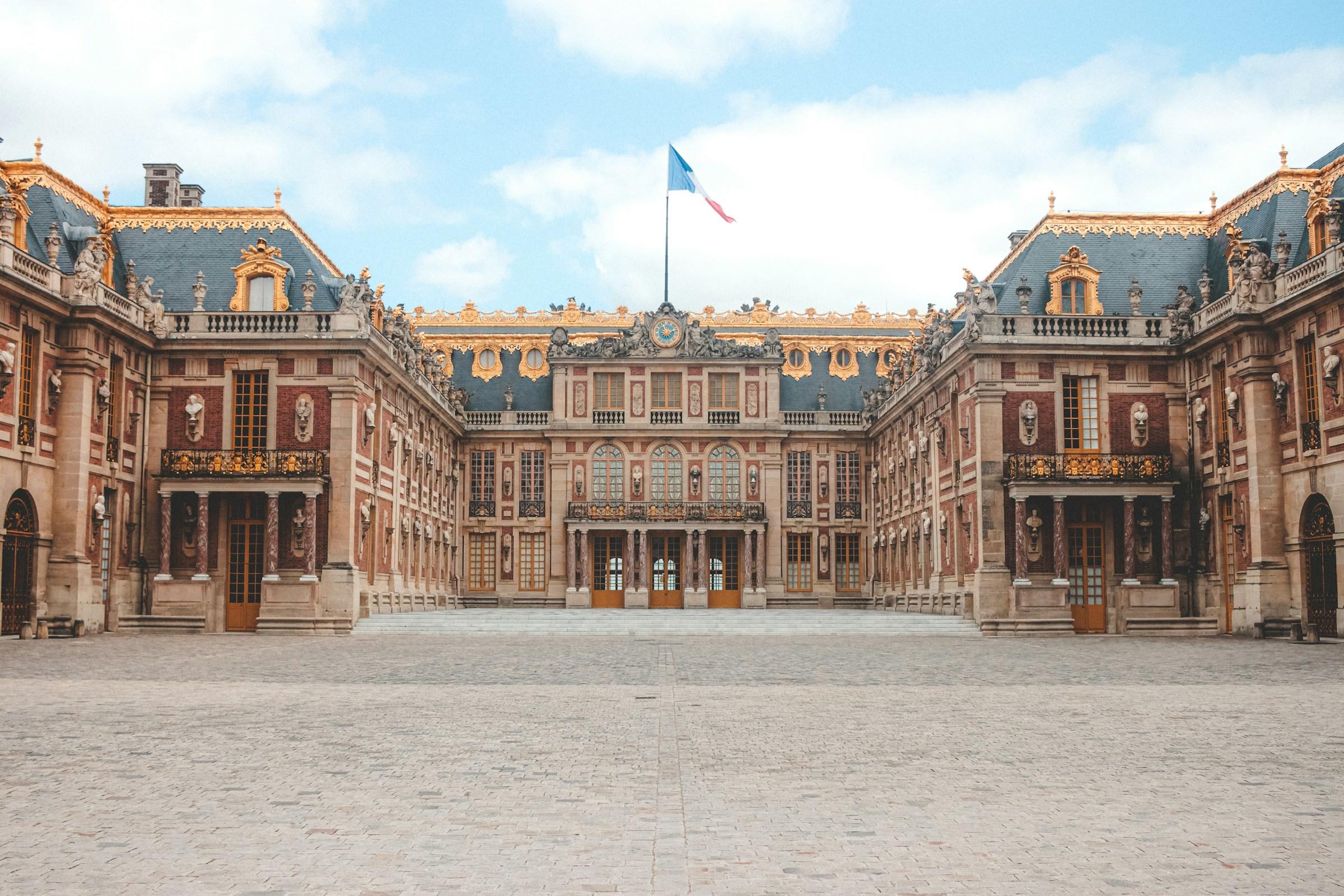














helpful
I love France so this was very interesting <3
I love you France country
The history of France is very good and important history, my favorite country is a very good country France I love you France
This is very helpful for me .
thanks
niceeee me likey like
This was helpful, thank you!
Amazing article
Very good
i was born in france so i love it but i am doing an article on france so this was really helpful.
Thank you for the feedback, Amelia! Good luck on your article!